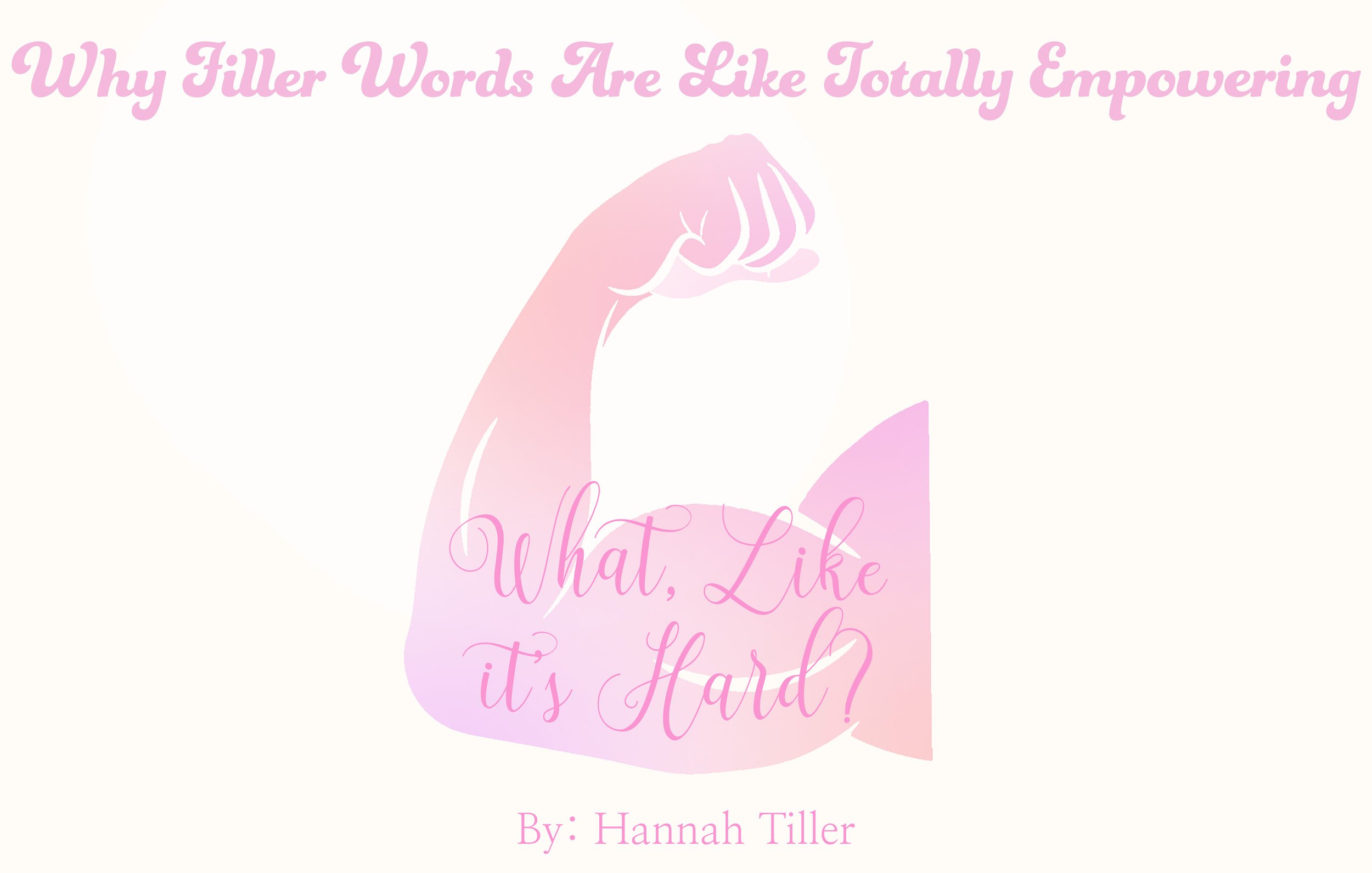February 17, 2022
Editor: Hannah Ostfield
Artist: Demetria Dresser
I recently stumbled upon the poetic masterpiece that is “Like Totally Whatever,” by New York-based writer Melissa Lozada-Olivia. To me, she admirably embraces topics showing the ugly sides of being a woman. For those who are not familiar with this poem, she addresses what our fathers correct us on, what writers and scholars shy away from, and what society deems women as uneducated for using: filler words.
Filler words are what we instinctively insert into sentences. From words such as “like,” “OK,” “so,” “yeah,” and “um,” we weave them in to gather our thoughts. For women, however, it is often seen as a bad habit to be broken - like nail-biting or knuckle cracking.
Many men see women as ditsy or inferior for regularly implementing filler words into their sentences. Take the storyline of Elle Woods in Legally Blonde, for example. A regular user of filler words, she shocks those around her when she gets into Harvard Law School. Her response?: “What, like it’s hard?”
Aside from the classic TV trope of women being underestimated by their vocabulary, linguistic anthropology has explored why groups of people speak the way that they do. Lexicon is the set of vocabulary special to a particular group of people. While lexicon differs by groups regionally, it often varies between genders.
Women more frequently utilize filler words in their lexicon due to a technique called style-shifting. My anthropology professor, Dr. Holly Peters-Golden, explained that we use different vocabulary depending on the social context. We speak differently to our parents than our friends or perhaps our professors.
So, what prompts women to use filler words more frequently? As Poet Melissa Lozada-Olivia touches on, men have dominated the room and therefore conversations since the beginning of time. It has been a continued norm to interrupt women before a full thought can be expressed, and men have continuously discredited what has not even been said.
We style shift, enacting filler words, as a “defense mechanism,” as Lozada-Olivia puts it. Any pause is mistaken as an invitation for someone else (often a man) to interrupt.
I’d like to highlight one of my favorite stanzas of Lozada-Olivia’s poem:
“Like this is protection, like our ‘likes’ are our knee pads.
Our ‘ums’ are the knives we tuck into our boots at night.
Our ‘you knows’ are best friends we call on when walking down a dark alley.”
I’m here to say that we need to own our filler words. Moreover, we shouldn’t shy away from the use of filler words to indicate we are not done talking. We stand our ground to be heard.
I’ve spoken to many of my female friends and they share the sentiment that parents and teachers correct or punish them for using filler words. Now is the time to understand why we are using them rather than dismissing them. Teaching women to eradicate a defense mechanism wrongfully blames women for demanding to be heard.
Melissa Lozada-Olivia poetically sheds light on why we should own our voices, filler words and all. We are a product of our silenced moms, aunts, grandparents, and ancestors. We need to wear our filler words like badges to honor, sharing that we refuse to be part of this continuum.
We should like totally break the pattern. Own your filler words and don’t be scared to use them, because there’s a reason why they’re there. You deserve to be heard.

